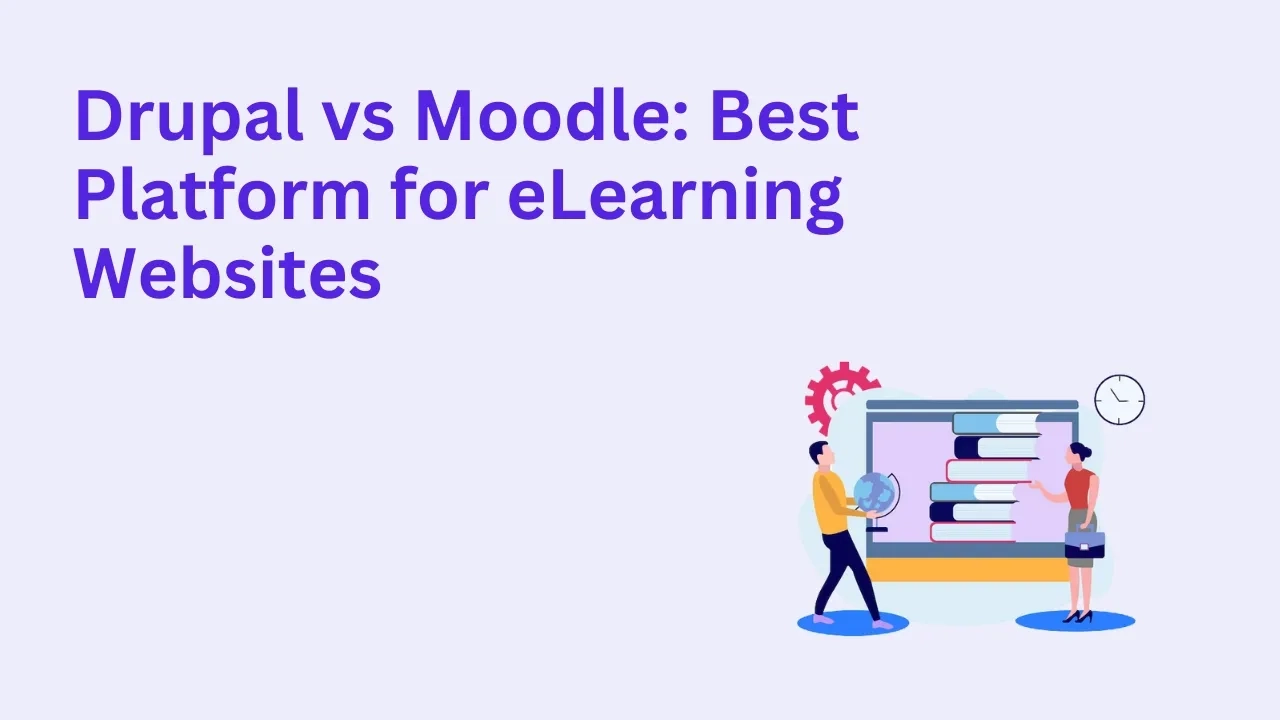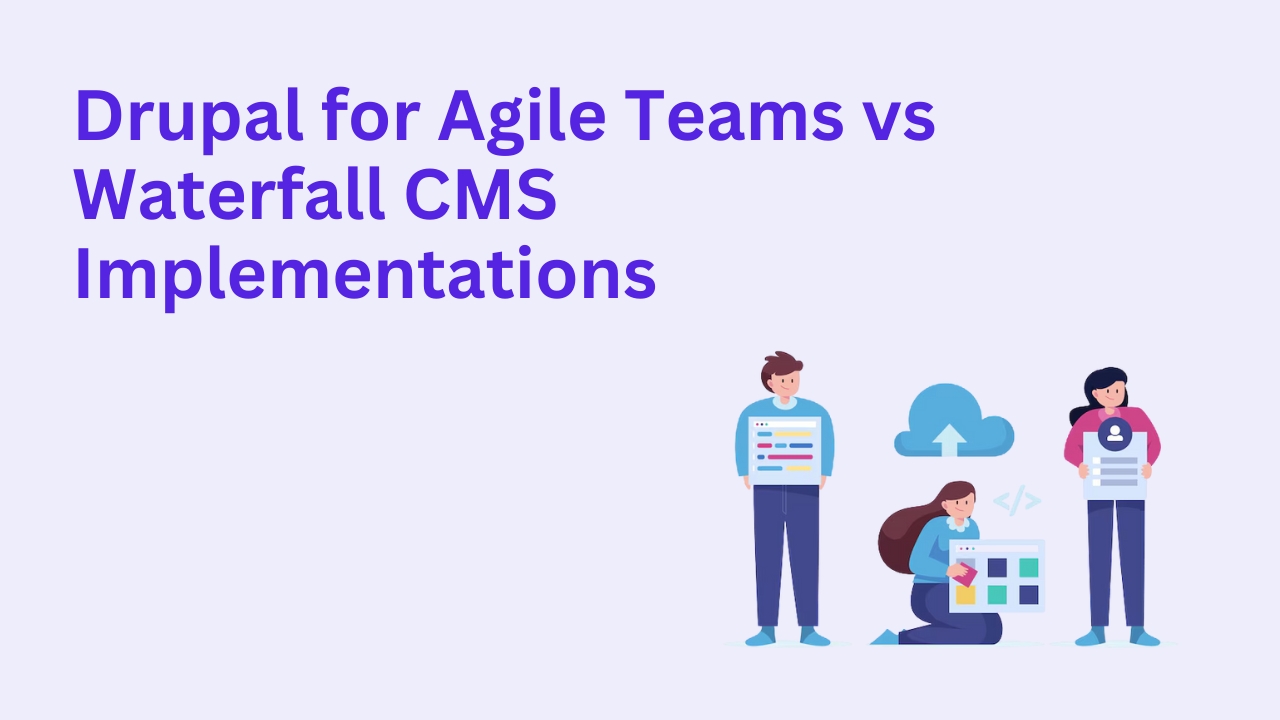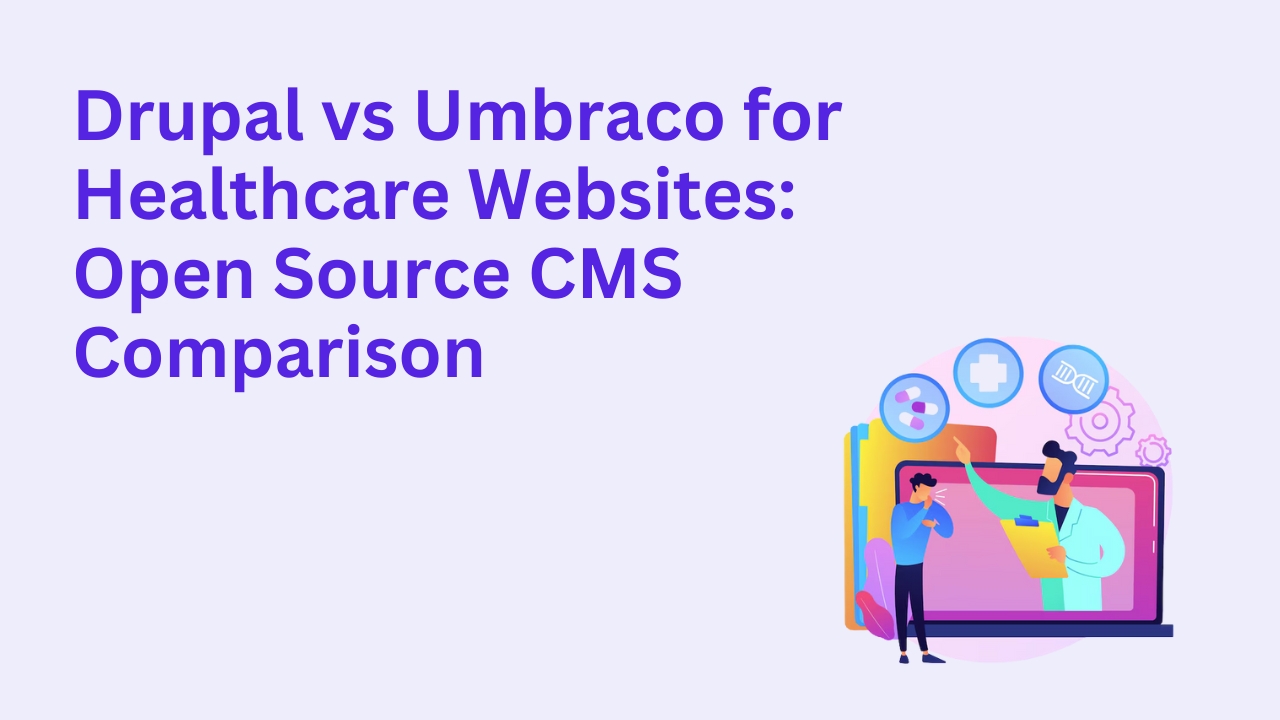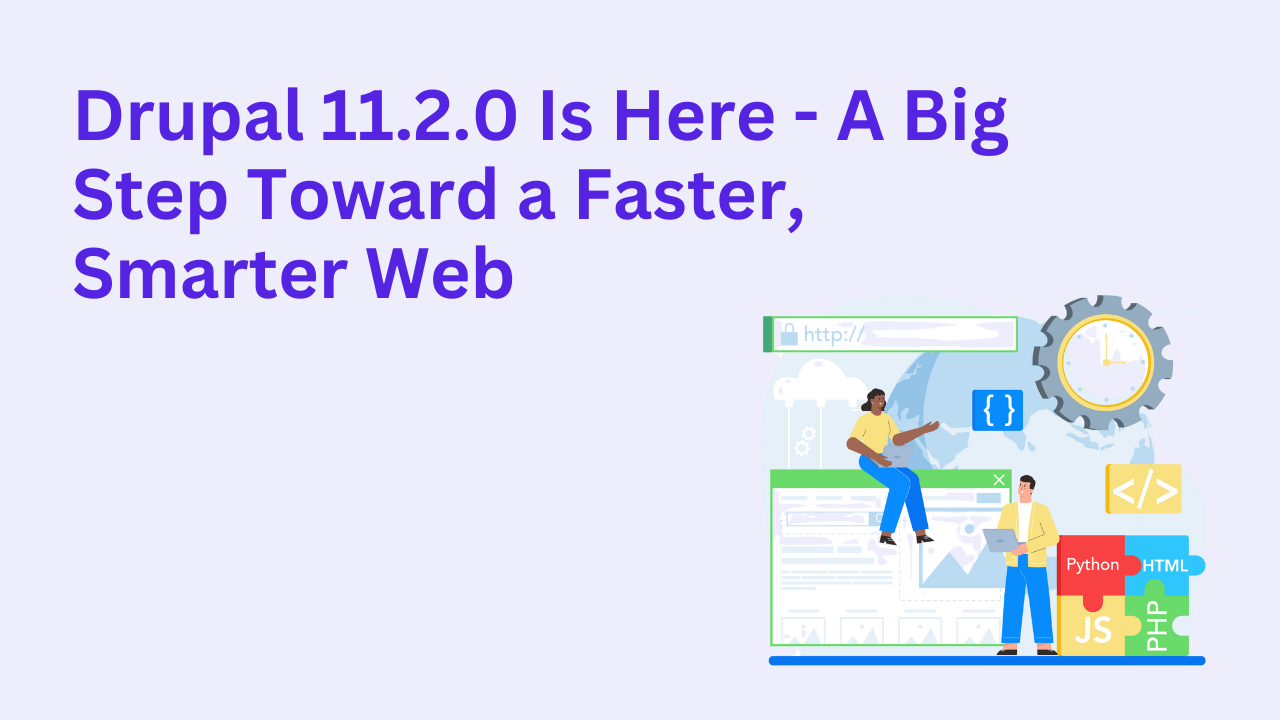Drupal vs Moodle: Best Platform for eLearning Websites

The global eLearning industry is booming—and so is the demand for reliable, scalable, and customizable platforms to build educational websites. Two of the most powerful platforms that frequently come up in this context are Drupal and Moodle.
But which one is the better fit for your online learning initiative?
In this blog, we compare Drupal vs Moodle across key factors such as customization, user experience, scalability, integrations, and use cases to help you make an informed decision for your eLearning project.
What Is Moodle?
Moodle is an open-source Learning Management System (LMS) designed specifically for education and training environments. It comes with built-in features like:
Course creation and management
Student enrollment and grading
Forums and quizzes
Reporting and assessment tools
Moodle is widely adopted by schools, universities, and corporate training teams due to its focus on education-first features and ease of course delivery.
What Is Drupal?
Drupal is an open-source Content Management System (CMS) used for building robust, highly customizable websites and applications. While not an LMS out of the box, Drupal is powerful for:
Managing complex content structures
Personalization and access control
Custom workflows and user roles
Integrating with LMS tools and third-party apps
With the help of modules like Opigno, Learnerfy, and Drupal LMS integrations, Drupal can be transformed into a powerful learning platform tailored to unique business or academic needs.
Key Differences Between Drupal and Moodle
1. Purpose & Core Strengths
Moodle is purpose-built for eLearning. It offers core LMS functionality out of the box and is ready to use with minimal configuration.
Drupal is more of a blank slate CMS with powerful content architecture. It shines when you want to integrate learning content into a broader digital experience or need full control over design and structure.
2. Customization
Moodle allows customization through themes and plugins, but is relatively rigid in terms of UI/UX flexibility.
Drupal offers complete control over the front end and user experience. You can design custom learner portals, gamification flows, and fully branded experiences.
3. Scalability
Moodle scales well for small to medium-sized learning institutions.
Drupal, being an enterprise-grade CMS, is better suited for large-scale educational platforms with thousands of users and advanced content needs.
4. Integrations
Moodle supports educational tools (SCORM, LTI, H5P), but integration with business apps may require extra effort.
Drupal offers extensive integration capabilities with CRMs, analytics, marketing tools, and even Moodle itself, enabling a hybrid LMS-CMS environment.
5. Use Cases
Choose Moodle if your primary need is course management, testing, and training delivery.
Choose Drupal if your platform needs to combine learning with blogs, communities, media portals, or personalized user journeys.
When to Use Drupal for eLearning
Drupal is the better choice if:
You need a fully customized learning portal
You want to combine LMS features with content marketing, community, or eCommerce
You require multilingual support and advanced user roles
You plan to integrate LMS content within a broader digital ecosystem
When to Use Moodle
Moodle is ideal if:
Your primary need is a ready-to-use LMS
You're building a traditional academic learning portal
You want to launch fast with minimal development
You don’t need extensive third-party integration or custom UX
Final Thoughts
Moodle is a fantastic choice for standardized educational environments. It’s straightforward, LMS-focused, and great for course delivery.
Drupal, on the other hand, is better for organizations that want more control, flexibility, and scalability in their eLearning platforms. Whether you’re creating a training portal for a global enterprise or a fully branded online academy, Drupal offers unmatched versatility.
At Drupalify, we help education and training providers design powerful, scalable Drupal-based eLearning platforms that deliver engaging, personalized learning experiences.
👉 Hire Drupal Developers to build your next-generation eLearning site
📅 Book a free consultation to explore your options








